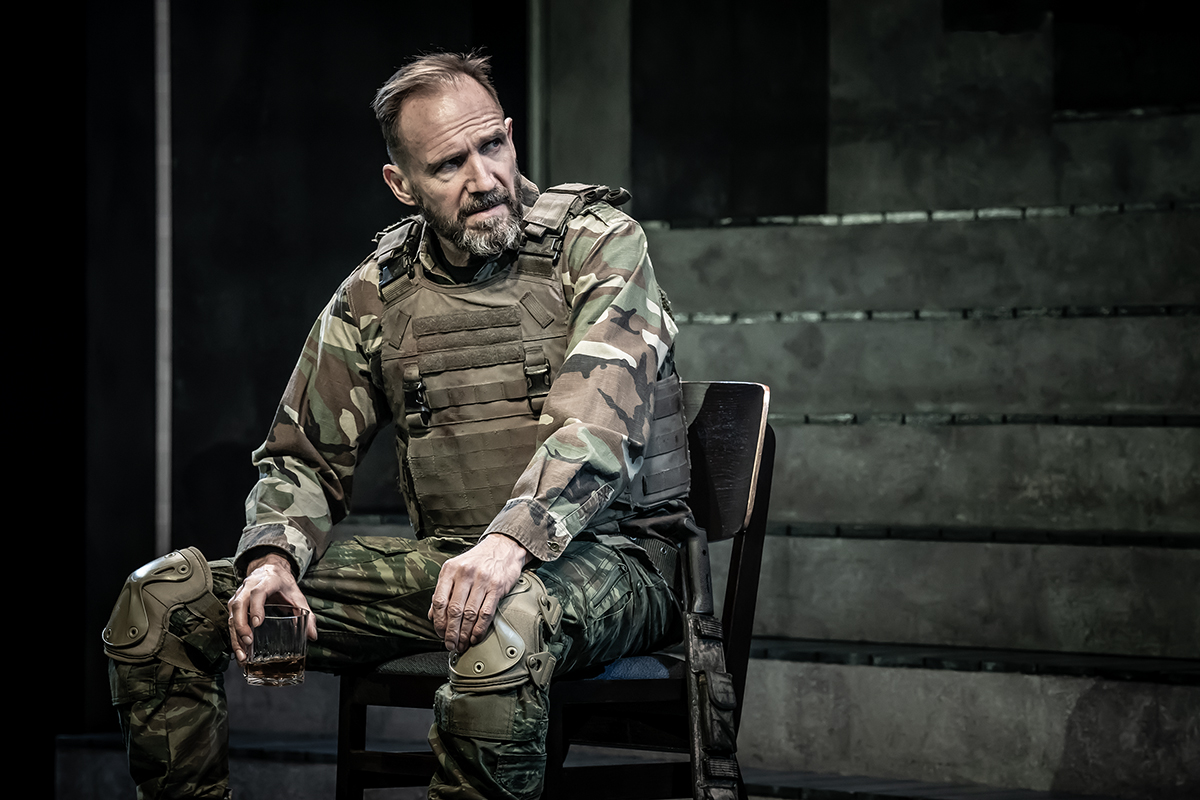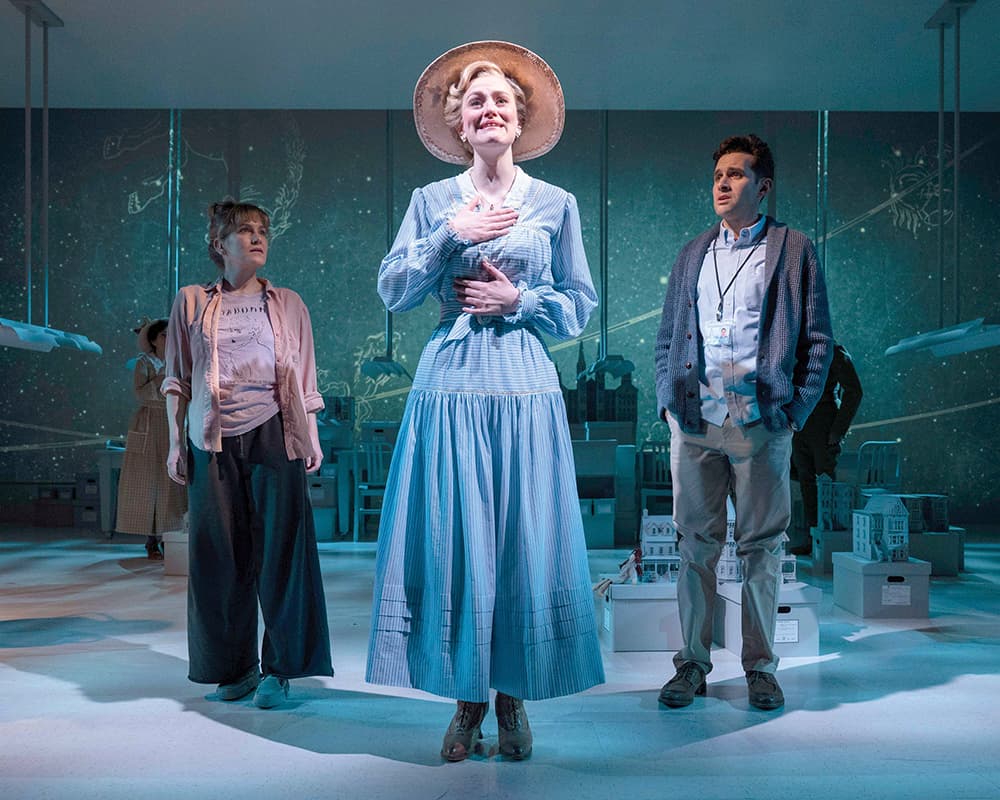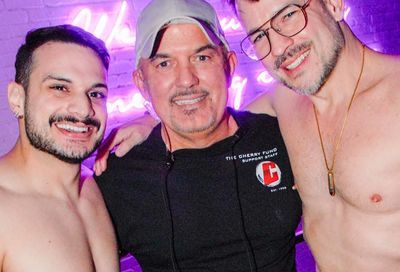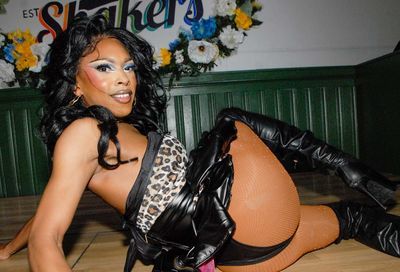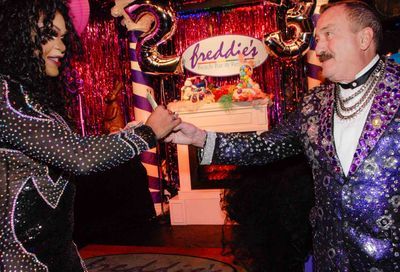Bold Confession
Marcus Gardley's every tongue confess christens Arena's Kogod Cradle with a mercurial Southern fairy tale
The surest way for any theater critic to cover his ass is to say that a certain play or musical ”will mean different things to different people.” It’s a way of stating the obvious while not entirely letting go of one’s authority.
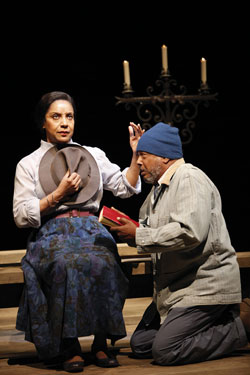
every tongue confess
(Photo by Joan Marcus)
Every now and again, however, a show is put on stage where such a statement must be made — not as a means of protecting one’s own backside, but as a way explaining the transformation a play might undergo when viewed by a particular audience member. Where some might see a show that is certainly well-written and imaginatively crafted, others will feel the whole earth tilt. The immense vision of the playwright speaking directly to them in a vocabulary they recognize as their own.
Take every tongue confess, Marcus Gardley’s world premiere play christening Arena Stage’s new Arlene and Robert Kogod Cradle at the Mead Center for American Theater.
On the surface, Gardley has written a kind of Southern fairy tale about hatred and racism and rejection. It’s an emotionally difficult work that guards itself against obvious message or sympathy. Evil is as complicated as good, and understanding either requires a powerful imagination or complete and utter faith.
And that is where every tongue confess holds the promise of buried treasure for some.
In a city where faith and religion are alternatively wielded as prop or moral property, every tongue confess taps deeply into the fertile ground of Bible stories and Sunday School lessons and gospel music that is more church to some people than the building in which these activities take place. Viewed from that singular perspective, feeling not only the emotion of Gardley’s words but the searing horror of a church burning, every tongue confess is something perhaps even more beautiful and rich, a play that respects both believer and passerby, asking acceptance from one and understanding from the other.
The play weaves together three seemingly disparate tales. The first is of three individuals trapped in a burning church building who discover that as long as Elder (Eugene Lee) continues to tell Missionary (Crystal Fox) and Brother (E. Roger Mitchell) the other two stories that make up the narrative, the flames of the fire appear to be held at bay. For those of you who remember Sunday mornings in a fellowship hall or church classroom this may call to mind the story of Shadrach, Meshach and Abednego, who the book of Daniel tells us were cast into a furnace by Nebuchadnezzar but were protected by their faith in God.
Then there is Bernadette (Leslie Kritzer) and Benny Pride (Autumn Hurlbert), a mother and daughter separated by a single senseless act that sends Benny to go to live with her father (Jim Ireland). Benny has never so much as met Stoker Pride, and their reunion is further strained by the fact that Benny has lost the ability to speak.
And finally, there is Mother Sister (Phylicia Rashad) and her son Shadrack (Jason Dirden). Mother Sister is a backwoods healer who, because of her decision to fight God in a vain attempt to save her husband from death, goes blind and powerless on any night where the moon is not visible.
With a careful hand, Gardley, as much poet as playwright, patiently binds these three worlds together – three becoming one – in a fashion that honors the magical realism that colors every scene and action (the reason behind the loss of Benny’s voice is far more wondrous than a pedestrian medical diagnosis) and the weighty reality that swims at the play’s edges.
For those going to the Cradle hoping to catch a glimpse of Claire Huxtable, there will be a certain degree of disappointment. Of course, that disappointment will quickly be replaced by the joy of seeing a Tony Award-winning actress who has taken to Broadway’s stages in Cat on a Hot Tin Roof, Raisin in the Sun, Jelly’s Last Jam, Into the Woods and Dreamgirls. Rashad is magnetic as Mother Sister, infusing her stoic and flint-edged personality with great dignity. When the walls that protect her character begin to tumble down, Rashad reveals just how broad and vigorous a foundation she has built for Mother Sister. The movement is seamless and, because of that, she is vibrantly human.





To Jan. 2, 2011
Arena Stage
1101 Sixth St. SW
$40 and up
202-488-33300
arenastage.org
Jonathan Peck plays the mysterious Blacksmith, a man who suddenly appears in Mother Sister’s home. A powerful presence with immense gravity, Peck has the challenge of playing a man with seemingly no past and an uncertain future. Caught in this odd middle space, Peck gives us an individual who lives spontaneously and without boundaries. It’s a gripping performance.
Equally challenged is Hurlbert, asked – as you will notice many of every tongue confess‘s characters are – to balance between two worlds. She is a teenage girl, ripped from the home she knows and robbed of the only thing that is truly her own. Her voice. The affection that Hurlbert has for the character of Benny appears almost palpably on stage, a desire to show us a young woman who is headstrong but hardly invulnerable. When Benny is finally able to raise her voice it may, in fact, be the single moment that truly unites the play’s entire audience in a moving moment of shared empathy and understanding.
every tongue confess defies easy categorization because it boldly and unashamedly straddles two worlds. It is, without question, a strongly devised piece of theater that can be admired for its creator’s understanding of what it is to write an intelligent and thought-provoking work. But it is also a play that one can allow to simply wash over them, firm in the knowledge that Gardley will safely bring us home.
Support Metro Weekly’s Journalism
These are challenging times for news organizations. And yet it’s crucial we stay active and provide vital resources and information to both our local readers and the world. So won’t you please take a moment and consider supporting Metro Weekly with a membership? For as little as $5 a month, you can help ensure Metro Weekly magazine and MetroWeekly.com remain free, viable resources as we provide the best, most diverse, culturally-resonant LGBTQ coverage in both the D.C. region and around the world. Memberships come with exclusive perks and discounts, your own personal digital delivery of each week’s magazine (and an archive), access to our Member's Lounge when it launches this fall, and exclusive members-only items like Metro Weekly Membership Mugs and Tote Bags! Check out all our membership levels here and please join us today!




